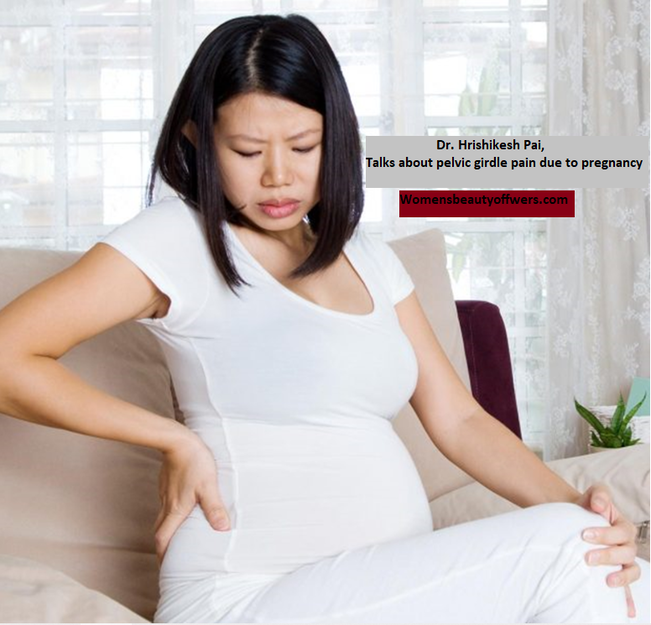Table of Contents
A woman in her lifetime is born on many occasions. She is born a daughter and a sister, takes a new form as wife and daughter-in-law, and becomes a mother and best friend and a companion in the end. When she takes on the role of becoming a mother, she is putting up her entire being at risk for the love of a child. Dr. Hrishikesh Pai talks about what are the physical implications of your pregnancy and managing this delicate phase of life which needs you to be more robust than ever. Find here – Dr. Hrishikesh Pai talks about pelvic girdle pain due to pregnancy.
His care and compassion along with his expertise and years of experience make him the top gynaecologist of Mumbai. He is the founder of Budget fertility Clinic in Mumbai and also specializes in IVF procedures.
The pregnancy will see your body change for nine months and again after the birth of a child. The many changes that your pregnancy may contribute to are weight gain, too much hunger, too much sleep, fatigue, and induced medical conditions such as hypertension, diabetes, haemorrhoids, pelvic girdle pain, etc. While some conditions are temporary, like cravings, nausea, and morning sickness, some will persist post-childbirth also.
Pregnancy-related Pelvic Girdle Pain (PGP)
Pregnancy-related Pelvic Girdle Pain (PGP) or Symphysis Pubis Dysfunction (SPD) is a pain in the buttocks, thighs, lower back, hips, pubic bones, or groin that affects 1 in 5 pregnant women. Pelvic discomfort can be mild to severe, preventing you from going about your everyday routine. PGP can begin during gestation, labor, or the weeks following delivery.
PGP makes even everyday activities of the day challenging to carry out. The pain can be that severe.
- long walks
- Stair climbing
- tossing in bed
- Putting on shoes, socks, and pants
- Getting in and out of the car, as well as driving
- Difficulty and pain during sexual intercourse.
PGP causes the following symptoms:
- Pain near the front of your pubic bone, almost in line with your hips and below your tummy
- Lower back pain.
- perineal pain (between vagina and anus)
- Pain that extends to the thighs
- Some women may experience or hear a clicking or grinding sensation in their pelvis.
What causes Pelvic Girdle Pain During Pregnancy?
The pain in the pelvic girdle may be because of multiple factors and coming to one reason is difficult. Frequently a mix of circumstances, such as the uneven pelvic girdle movement, past pelvic trauma, or hypermobility syndrome. A small proportion of women experience hormone-induced pain in the pelvic joints, and the baby’s position can occasionally trigger PG symptoms. It is essential that when you conceive, you keep moving about and keep doing your daily activities; otherwise, lack of muscle movement can cause Poor muscle function in the back, tummy, and pelvis.
What is the best way to deal with PGP?
Expectant mothers who are suffering from PGP should attempt the following:
- Maintain an active lifestyle within the confines of your comfort and avoid strenuous activities.
- take the help of family and friends to accomplish daily tasks.
- sit and work as much as possible; avoid standing.
- Take extra breaks.
- keeping a pillow between your legs while sleeping on your side is beneficial for your pelvic joint.
- give adequate back support while sitting.
- climb the stairs with the same foot, the less painful one.
- Avoid activities that require you to move your pelvis in an uneven position. E.g., sitting with legs crossed, if you have to, cross them at your ankle, not knees, reaching for things in stretched positions, pushing, tugging to one side, and bending and twisting to lift or carry something on one hip.
- You should seek the advice of a physiotherapist.
What kinds of exercises can you do while you’re waiting?
It’s crucial to remember that PGP affects people differently, so you need to try the different ways mentioned above and see what suits you the best for increasing comfort. Some women say walking causes discomfort, while others believe swimming or aqua natal workouts are good. Whatever form of physical activity you choose to do, please do it with the guidance of a physiotherapist.
Does PGP interfere with labour and delivery?
Pregnant women with pelvic pain can have a normal delivery. Consult with your doctor and physiotherapist about your delivery options. Inquire with them about positions that may be more pleasant for you throughout labour and delivery.
Pregnancy-related pelvic girdle pain is manageable under the expert guidance of your gynaecologist. We at Budget fertility centre think that every mother’s pregnancy should be the most unforgettable event of her life. We make every attempt to make things as simple as possible for all of our expecting mothers.
See also – Ways of Maintaining a Healthy Pregnancy
ABDOMINAL PAINS DURING PREGNANCY


